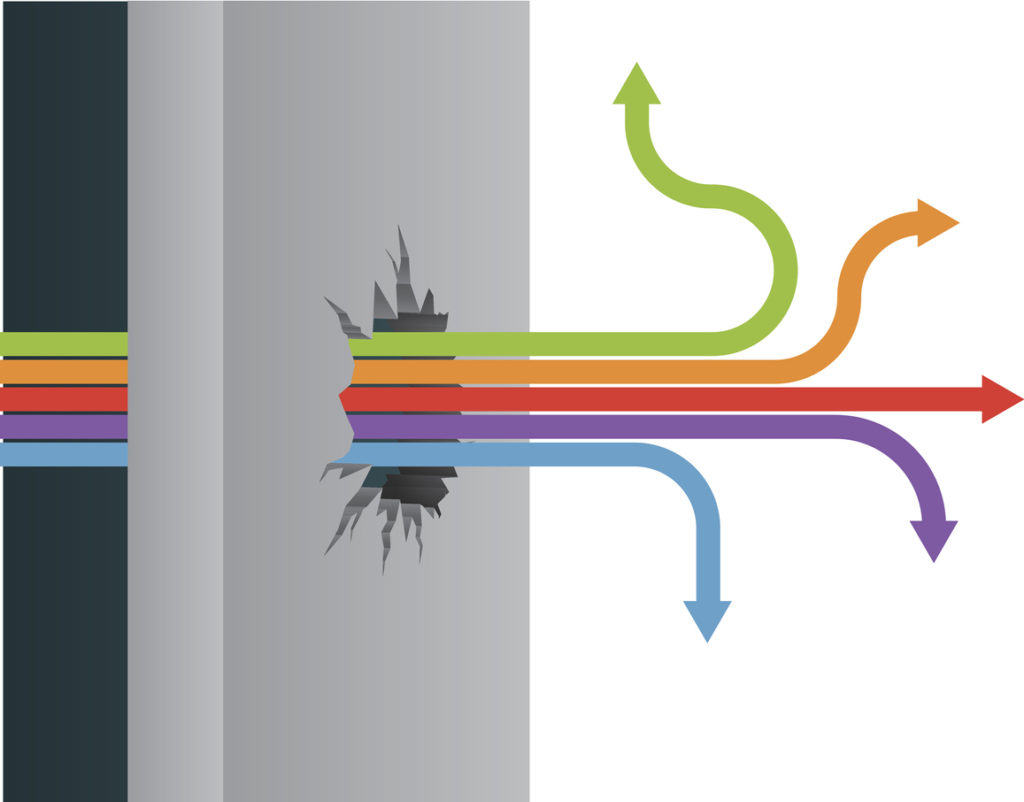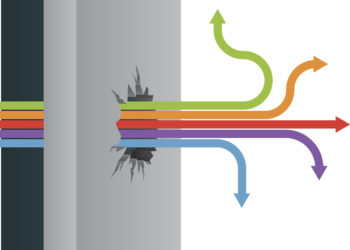Editor’s Note: Today’s post follows up on Part 1 from yesterday, and is authored by Kasia Repeta, Digital Marketing Coordinator at Duke University Press and an SSP Fellow of the 2019 cohort.
Since COVID-19, scholarly communication professionals have rapidly moved their focus from predefined road maps and modes of operation to actively responding to the ongoing global health crisis, and more recently, the anti-racism protest movement. Both called for actions and awareness-building efforts. Featuring, or even freeing related content from behind paywalls, creating reading lists, and organizing webinars and discussion groups with experts on related topics are just a few examples of how our community is educating people about the issues, building their awareness, and providing them with access to research results.
The question arises: when the direct threat to global health and economies cease, and protesters leave the streets, will publishing communicators keep up this momentum and continue to rapidly utilize research-driven content to illuminate topics like climate change, racial injustice, minority rights, social justice, and sustainable development that require ongoing global attention? While it’s reassuring to know that there are already many programs and tools focused on increasing research discoverability and providing support for scientists to effectively convey the value of their research, there has never been a more important time to move from reacting to acting.
The contributors to today and yesterday’s blog posts represent and embrace a diversity of thoughts shaped by different cultures, backgrounds, and experiences. This is a call to action for our colleagues in scholarly communications worldwide. Please share your thoughts — comments are encouraged!

An Internationalist Vision for Scholarly Marketing
Alejandra Mejía, Editorial Associate and Student Worker Program Manager, Duke University Press
Internationalism is an ideology that advocates a greater political and economic cooperation among nations. While the relationship between internationalism and scholarly marketing may not be immediately apparent, I propose that approaching our scholarly marketing work with an internationalist lens, or at the very least with a sensitivity toward global power dynamics and cross-cultural accessibility and connection, can make us more ethical, socially responsive publishers who can contribute towards positive global change.
In order to move in this direction, we must first acknowledge that American scholarly publishing does not exist in a vacuum. We live in a society that was built on indigenous genocide and the forced enslavement of African people and which reproduces inequality and violence. We are witnesses to the continuation of these injustices today, for example, with the soaring rates of COVID-19 cases ravaging the Navajo Nation, which lacks the proper infrastructure to handle the crisis, as well as with the state-sanctioned police violence disproportionately affecting poor and working-class Black people. We must continue to reckon with and correct this history at an institutional and societal level and, beyond that, we must also think about the role that the United States occupies in a larger global context.
For instance, brain drain, or the emigration of highly skilled workers like academics from low-to-middle income countries to wealthier ones, flows from south to north internationally (with a few notable exceptions like India and South Africa). This has contributed to the prestige of the American, Canadian, and various European academies and we as American scholarly publishers also benefit from the intellectual contributions of these migrant scholars. However, this south-to-north migration pattern has inevitably resulted in an asymmetry of knowledge production, which privileges the academic contributions coming out of the Global North.
To move forward in a more ethical, culturally-responsive manner that is self-aware of global power dynamics, I propose creating scholarly marketing strategies that are accessible in multiple ways, and building relationships of collaboration with international publishers, particularly those in the Global South. It is essential to continue creating and publicizing open access content that bridges class divides as well as webinars and podcasts that engage audiences in creative ways. Publishing and publicizing multilingual content and engaging in multilingual marketing strategies, particularly in the United States, where there is a growing demographic of Latin American migrants, can serve as a culturally-responsive strategy that will meet the needs of these communities. Furthermore, developing sustained collaborations with both academic and non-academic publishers in the Global South, especially those in Latin America, Asia, and Africa, should result in a multidirectional learning and exchanging of resources that breeds an international sense of solidarity in the face of challenges like this global pandemic, climate change, and worldwide social and economic injustice.
Improving Equity in Global Scholarly Communication
Siân Harris, Communications Specialist, INASP
Helping bridge the gap between research and impact, especially in a way that reduces inequities in the global scholarly system, is not simple or quick. Here are a few things that publishers might want to consider when publicizing content, summarized from this article I wrote last year about improving equity in global scholarly communication, and particularly working to reduce biases against researchers from low- and middle-income countries (LMICs):
- Think about what “counts” as research for inclusion in an academic journal to ensure research impact is relevant worldwide
- Think about the geographical diversity of your authorship, reviewer base, and editorial board
- Seek to understand LMIC authors’ contexts more. What gaps might there be in their knowledge about publishing processes? What extra support might be needed, for example, for non-native English speakers? What additional challenges might some authors face as a result of inequities as a result of gender, disability, or where they are based? What impacts do they look for from their research?
The AuthorAID project from INASP is working to help bridge the gap between research and impact, as well as some of the other gaps within global research communication, for example inequities arising from geography or gender. AuthorAID supports early-career researchers in LMICs in communicating their research through mentoring, online courses in research writing and other skills, facilitated discussions (for example, through online journal clubs), and a range of open resources.
We are always keeping an eye on new ways to respond to the challenges that are faced by researchers within our AuthorAID network and helping Southern research to be more visible and play a part in tackling the many challenges facing the world today. Recognizing that many researchers are currently unable to get to their labs or do field work, we have introduced some new online courses and tutorials over recent months to help with development of core skills such as research writing and critical thinking. We have also been piloting a new online module to help researchers interact with policymakers more effectively.
Over the years we have been pleased that some publishers have wanted to work with AuthorAID to provide more tailored support to their authors in LMICs. There are a range of ways that all publishers can get involved:
- Promote AuthorAID to your authors – Direct researchers to the AuthorAID website; follow us on Twitter (@authoraid); and share announcements of our latest online courses (the next research writing MOOC starts on 6th July)
- Sponsor an AuthorAID MOOC – Help ensure that our high-quality courses remain available and free at the point of access to researchers across the globe.
- Encourage your senior authors, editors, and others to consider becoming an AuthorAID mentor or using the AuthorAID database as a starting point for research collaborations.
Increased Potency Is Marketing Technology (MarTech)
Colleen Scollans, a Marketing & Digital Transformation Consultant
Scholarly publishers are uniquely positioned to help solve some of the world’s most pressing issues. While marketing has always played an important role in supporting both the mission and revenue objectives of presses, marketing’s ability to make a positive impact has never been greater.
The reason for this increased potency is Marketing Technology (MarTech). With over 8,000 tools, Marketing Technology has transformed both the discipline of marketing and how organizations engage with their customers. When successfully implemented, Marketing Technology is a digital transformation catalyst enabling organizations to improve marketing performance, get closer to customers, and make decisions based on sound evidence. Many publishers utilize MarTech tools including email, social media, marketing automation, and CRM. While important, these tools are just the tip of the MarTech iceberg. One area of opportunity, particularly now, for scholarly publishers is around customer and audience intelligence. Through Marketing Technology, marketers have an increasing number of ways to listen to customers, from traditional surveys to newer data and technology-enabled capabilities that track interaction, engagement, sentiment, and intent. In addition, MarTech is augmenting historical performance data with leading indicator and predictive analytics.
In these challenging times, customer data and insights have never been more important. As budgets tighten and business models change, it is those scholarly publishers with robust customer insight programs that will have the advantage. Customer intelligence guides responses in challenging times and offers innovative solutions when reinvention is needed. If your organization does not have a program to systematically collect and measure customer feedback beyond semi-regular surveys, now would be a good time to invest. To help foster inclusivity and diversity, ensure your customer insight programs represent the full range of those in your community. In addition to survey tools, which have been around for decades, Marketing Technology has new mechanisms to capture more regular, less formal feedback at scale. It is equally important to analyze customer data, ideally going beyond CRM, to develop robust audience and customer segments that include behavioral data. AI-fueled identity resolution is changing the customer data landscape. For example, it is now much easier to match anonymous visitors to known customers giving scholarly publishers new insight into reading patterns. As scholarly publishers look to solve some of the current challenges in the world, customer insight will pave the way forward.
Conclusion
This set of ideas and calls to action is just a representation for what can be done if we all embrace this important time in history and act toward contributing to solve some of the most pressing global issues. See yesterday’s post for more contributions from more authors — we look forward to hearing your thoughts in the comments below.



